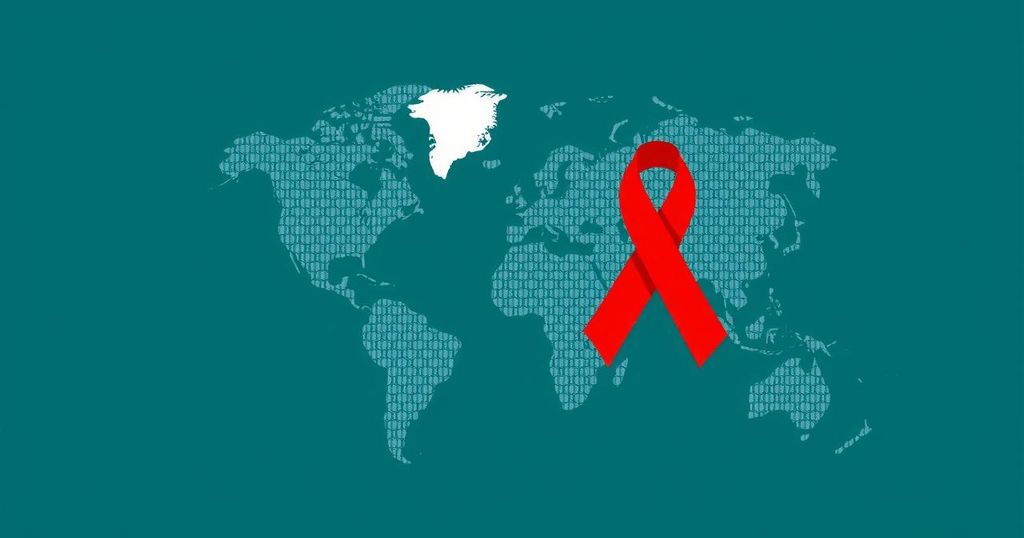Climate change
AFRICA, ASIA, AZERBAIJAN, BAKU, CLIMATE CHANGE, CLIMATE RESILIENCE, EUROPE, FOOD SECURITY, FUND, GENEVA, INTERNATIONAL COOPERATION, JOINT UNITED NATIONS PROGRAMME ON HIV / AIDS, PARIS AGREEMENT, SUB - SAHARAN AFRICA, SWITZERLAND, UN, UNA, UNAIDS, UNDP, UNITED NATIONS DEVELOPMENT PROGRAMME, UNITED NATIONS PROGRAMME ON, WINNIE BYANYIMA
Leila Ramsay
0 Comments
Climate Crisis and HIV: Urgent Call for Integrated Action at COP29
A recent policy brief from UNAIDS and UNDP highlights the risks posed by climate change to the HIV epidemic, emphasizing the potential for increased infections and AIDS-related deaths as a result of disrupted health services. Countries facing climate vulnerabilities also have high HIV burdens and significant debt challenges, exacerbating existing inequalities. The report calls for a coordinated global response to these interconnected crises to preserve health advances and foster resilience in affected communities.
The recent policy brief from the Joint United Nations Programme on HIV/AIDS (UNAIDS) and the United Nations Development Programme (UNDP), presented at the COP29 Climate Conference in Baku, highlights the interconnected dangers between the climate crisis and the HIV epidemic. The report warns that ongoing climate change threatens to disrupt HIV-related services, particularly affecting the most vulnerable populations. This disruption stems from an erosion of public health infrastructure, increased incidence of diseases that coincide with HIV, and greater food and water insecurity, leading to potential spikes in new HIV infections and heightened AIDS-related mortalities.
Winnie Byanyima, Executive Director of UNAIDS, emphasized the fragile progress made in the fight against AIDS, stating that “The progress we have made tackling AIDS is fragile – and it could be unwound by runaway climate change.” Many countries most susceptible to climate change also grapple with significant HIV burdens, compounding the challenges of insufficient climate finance, a notable HIV funding gap, and overwhelming sovereign debt. These interconnected crises illustrate the need for a united response that addresses health, climate justice, and economic stability.
The report stresses that of the 4,000 adolescent girls and young women newly infected with HIV weekly, an alarming 3,100 are located in Sub-Saharan Africa, where climate change could render regions uninhabitable. Despite the Global Fund’s commitment to direct 70% of its HIV financing to the regions most affected by climate vulnerability, the funding shortfalls remain a persistent challenge. Furthermore, many nations spend more on servicing their debts than on healthcare, significantly undermining their ability to address both climate and health crises.
Examples of how climate change directly impacts public health are already evident. For instance, Cyclone Freddy in Malawi displaced approximately 37,000 individuals living with HIV, who then faced challenges accessing critical health services and medications amid overwhelming crises. Hence, during COP29, the UN agencies are advocating for governments to introduce equitable solutions, promote effective leadership, and secure sustainable financing to avert a climate-induced HIV crisis.
Marcos Neto of UNDP noted that “At COP29 we can see increasing recognition that the climate crisis is compounding existing health challenges.” Recognizing the interconnectedness of health and climate initiatives can help preserve health advancements and foster resilience in communities disproportionately affected by these overlapping crises.
The policy brief addresses the alarming implications of the climate crisis on the ongoing fight against HIV/AIDS. As the world grapples with escalating climate challenges, vulnerable populations, particularly in regions hard-hit by both climate impacts and HIV infections, face an urgent selection of health inequalities. Countries with high HIV burdens, many of which are in developing regions, are simultaneously struggling with limited health resources, making the intersection of these crises a significant focus for international health organizations, such as UNAIDS and UNDP. By linking climate change and health initiatives, stakeholders aim to encourage coordinated responses that effectively address these crises.
In conclusion, the interplay between the climate crisis and HIV/AIDS presents a daunting challenge that demands urgent attention. It is essential for global leaders and organizations to recognize the complexities of these intertwined issues and work collectively to ensure adequate funding, equitable health services, and climate resilience strategies. The need for immediate and sustainable interventions has never been more critical to protect the health and well-being of vulnerable communities worldwide.
Original Source: reliefweb.int




Post Comment